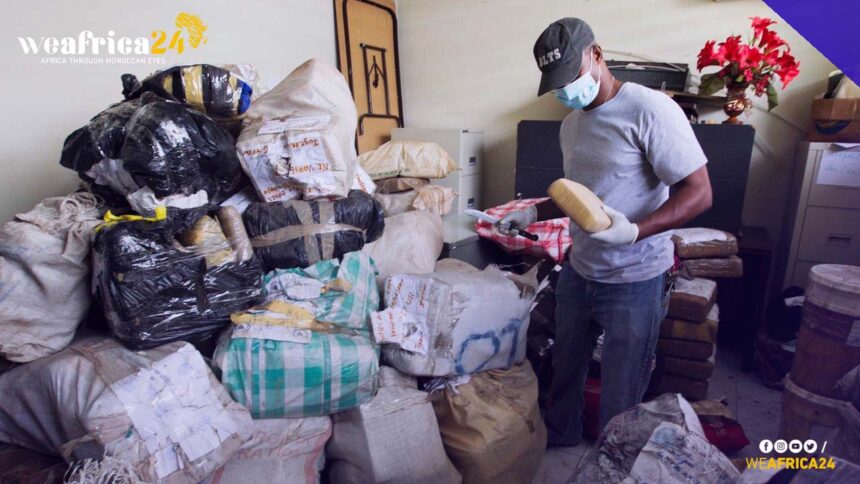The drug trafficking route from North Africa to Europe has emerged as a major concern, representing a significant challenge to law enforcement agencies and posing grave threats to both continents. This illicit trade has gained momentum over the years, fueled by the geographical advantage of North Africa’s proximity to Europe, and the region’s socio-economic vulnerabilities that traffickers exploit for their gains.
Geographical Nexus and Strategic Location
North Africa’s geographic position makes it a lucrative gateway for drug traffickers aiming to penetrate the European market. With its close proximity to the southern shores of Europe, traffickers use this route to smuggle illicit drugs into the European continent. The Mediterranean Sea, particularly the Western Mediterranean route, serves as a strategic pathway for the transportation of narcotics, such as cocaine, cannabis, and synthetic drugs.
Socio-economic Factors as Enablers
Several socio-economic factors in North Africa contribute to the flourishing drug trafficking trade. High unemployment rates, poverty, and lack of opportunities drive vulnerable populations into the clutches of criminal organizations. The promise of quick money and improved livelihoods entices individuals to become involved in drug trafficking, perpetuating a vicious cycle that sustains the trade.
Organized Crime and Corruption
Drug trafficking in North Africa is often orchestrated by sophisticated criminal networks with extensive reach and influence. These organizations take advantage of corruption within law enforcement and border control agencies, enabling the smooth movement of drugs across borders. Corruption fosters an environment where traffickers can operate with relative impunity, making it even more challenging for authorities to combat the issue effectively.
Nexus with Terrorism and Human Trafficking
The drug trafficking networks in North Africa are not limited to drug trade alone. They often intertwine with other illicit activities, such as terrorism and human trafficking. The proceeds from drug trafficking may be used to fund terrorist organizations, further destabilizing the region and posing significant security risks to both North Africa and Europe. Additionally, drug trafficking routes are sometimes exploited to facilitate the trafficking of vulnerable migrants, exposing them to grave dangers.
Impact on Society and Public Health
The influx of illegal drugs into Europe from North Africa has devastating effects on society and public health. Increased drug availability contributes to rising addiction rates, drug-related crimes, and strained healthcare systems. Additionally, drug abuse fuels social problems and fractures communities, impacting families and future generations.
Law Enforcement Efforts and International Cooperation
Combating drug trafficking requires collaborative efforts between North African countries and European nations. Improved intelligence sharing, joint operations, and capacity-building initiatives are crucial to dismantle the criminal networks involved. Enhanced cooperation can help disrupt the flow of drugs and dismantle trafficking operations, holding perpetrators accountable for their actions.







